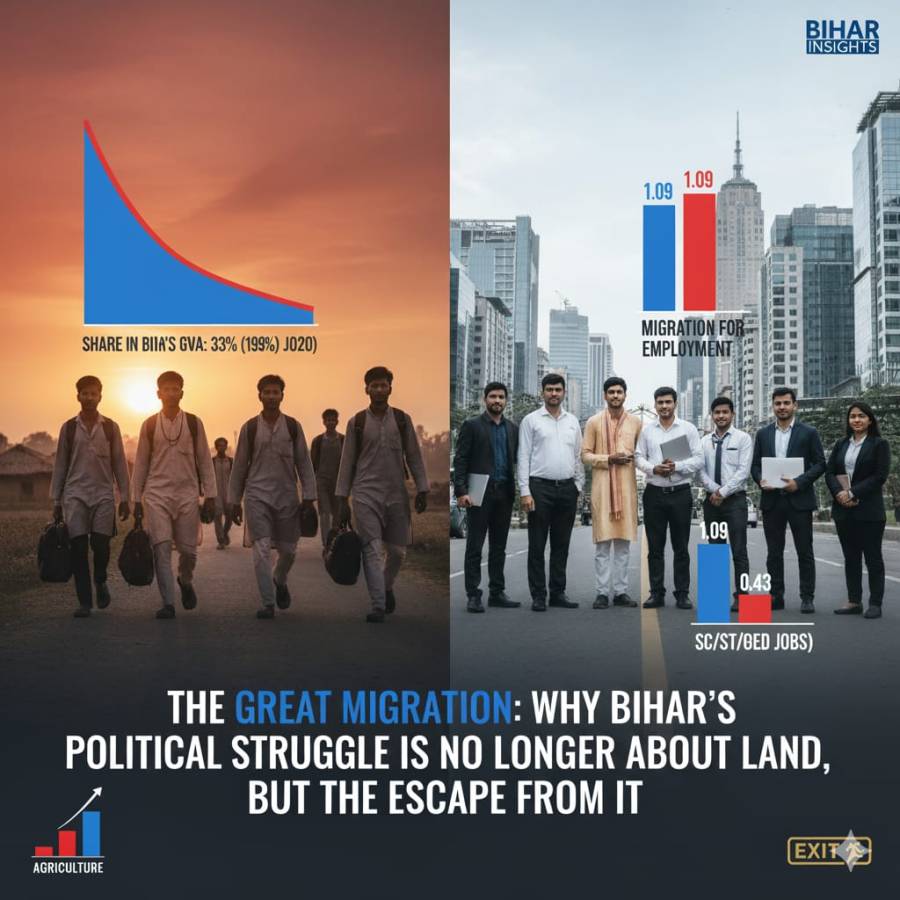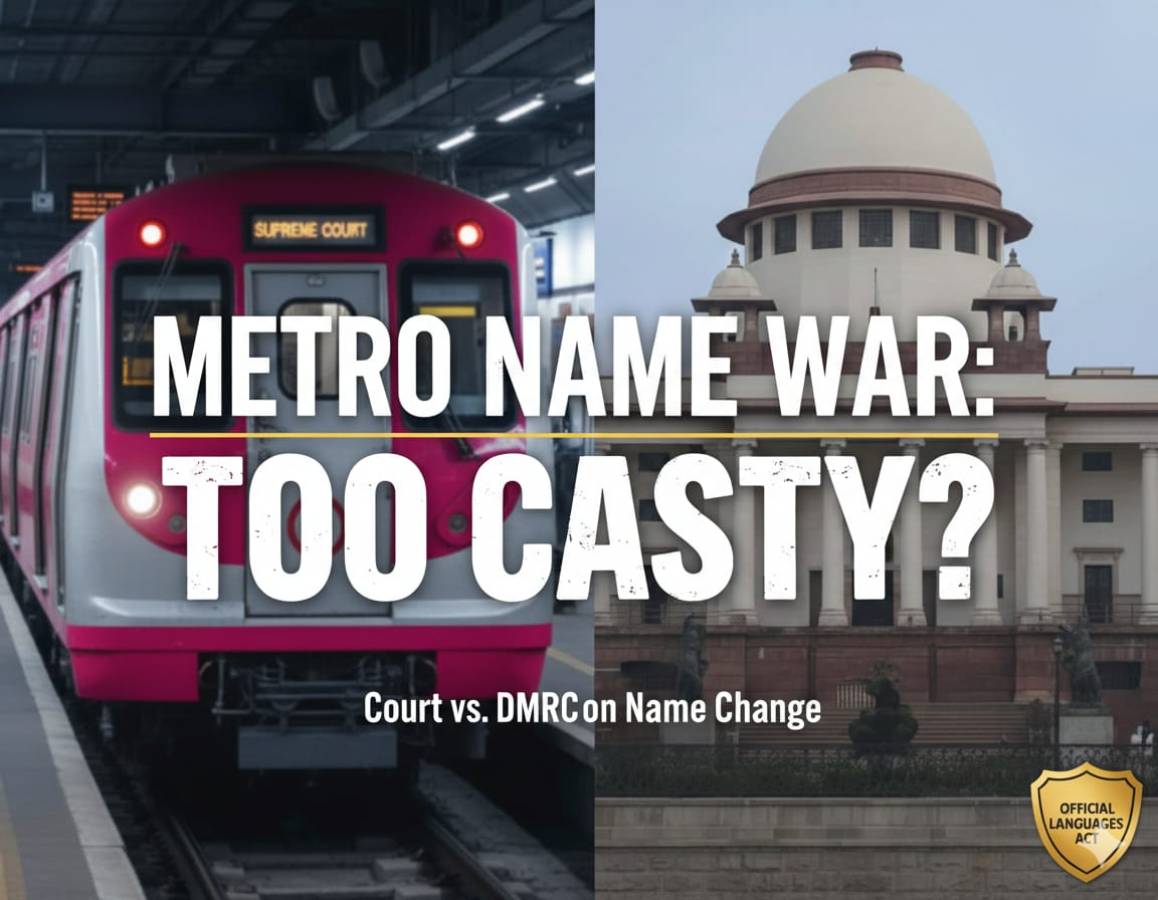
Bihar’s political landscape, long defined by intense caste dynamics and agrarian struggles, is undergoing a profound transformation. A critical examination of recent socio-economic indicators reveals that the traditional battle over land and agricultural resources is giving way to a new, complex fight for access to economic opportunities beyond the state’s borders. This shift, driven by significant agricultural decline and evolving migration patterns, reframes the very nature of political struggle in Bihar.
The core of this re-evaluation lies in stark economic realities. Data from a recent survey highlights a dramatic contraction in agriculture’s economic footprint in Bihar. Its share in the state's Gross Value Added (GVA) has plummeted from a substantial 33.29% in 1993-94 to a mere 14.63% by 2011-12, projected to decline further. This steep decline means that the land, once the primary source of wealth and conflict, now offers diminishing returns. While this has mercifully reduced the brutal agrarian conflicts that characterized earlier decades, it has paradoxically intensified competition for non-agricultural livelihoods, both within and outside Bihar.
The Job Paradox: Privilege Goes Mobile
The survey offers a compelling look at how different social groups are navigating this economic upheaval. It specifically highlights the success of Upper Castes in migrating for "better salaried jobs." While there's widespread migration across all social categories, the qualitative difference in employment secured by Upper Castes is striking. Their historical dominance in education and administrative roles has allowed them to access higher-paying, stable positions—including government and professional jobs—often in urban centers outside Bihar. This suggests a pattern where privilege is not just maintained but effectively mobilized, converting traditional social capital into portable economic capital.
For Other Backward Classes (OBCs) and Extremely Backward Classes (EBCs), while their political empowerment is a significant achievement and they form a demographic majority, their economic mobility faces different challenges. The survey indicates a higher proportion of these groups migrating for less secure, unorganized sector jobs. This creates a critical disconnect: political power is accumulating with these groups, but the most lucrative economic opportunities, particularly those requiring professional qualifications or leading to stable salaries, often remain out of reach or are captured by those with established networks.
This phenomenon is captured by specific survey figures: "Social-group-wise gross relative share in various occupations" clearly shows Upper Castes with significantly higher shares in "Government" and "Workers, Masons, etc." when compared to their population share, while SC/ST categories show notably lower shares, particularly in salaried positions. This is further underscored by the "Migration for employment" chart, which illustrates varying rates and destinations across caste groups, implying a qualitative difference in the type of employment secured.
Caste as a Pipeline, Not a Prison
This analysis suggests that caste in Bihar has evolved beyond its traditional role as a fixed social stratification. For Upper Castes, it now functions as an implicit, yet powerful, social and professional pipeline. Generations of access to education, bureaucratic positions, and social networks have created self-reinforcing systems that facilitate entry into preferred sectors outside the state. These established connections act as informal recruitment and support mechanisms, ensuring that the initial advantage translates into continued dominance in the modern, mobile economy.
In contrast, for historically marginalized groups, the hard-won political gains achieved through caste mobilization are crucial, but their economic translation into high-value, stable employment remains a struggle. They often rely on different migration channels, frequently leading to precarious work. The political struggle has therefore shifted from demanding land to demanding equitable access to these "migration pipelines" and the jobs they lead to.
A Ticking Time Bomb
The most poignant aspect of this shift is the enduring economic disparity within Bihar itself. The survey data on "highest income categories" confirms that Upper Castes continue to dominate the top income brackets, indicating consolidated wealth and influence even as many migrate. This dual control—economic leverage within the state and a monopoly on high-value external opportunities—reveals that while the nature of the struggle has transformed, the fundamental imbalances persist.
Bihar's political discourse, therefore, often serves as a proxy for this deeper economic reordering. The language of caste is used to negotiate access to a shrinking pool of internal resources and a highly competitive, externally-oriented job market. For future leaders, the challenge is immense: to move beyond merely counting caste affiliations and instead focus on creating equitable, high-value economic opportunities within Bihar, or democratizing the pathways to success outside it. Without this fundamental shift, Bihar’s 'Great Migration' will continue to fuel a political struggle whose roots lie not just in land, but in the desperate search for an escape from it.
By Gautam Jha
Managing Editor





















